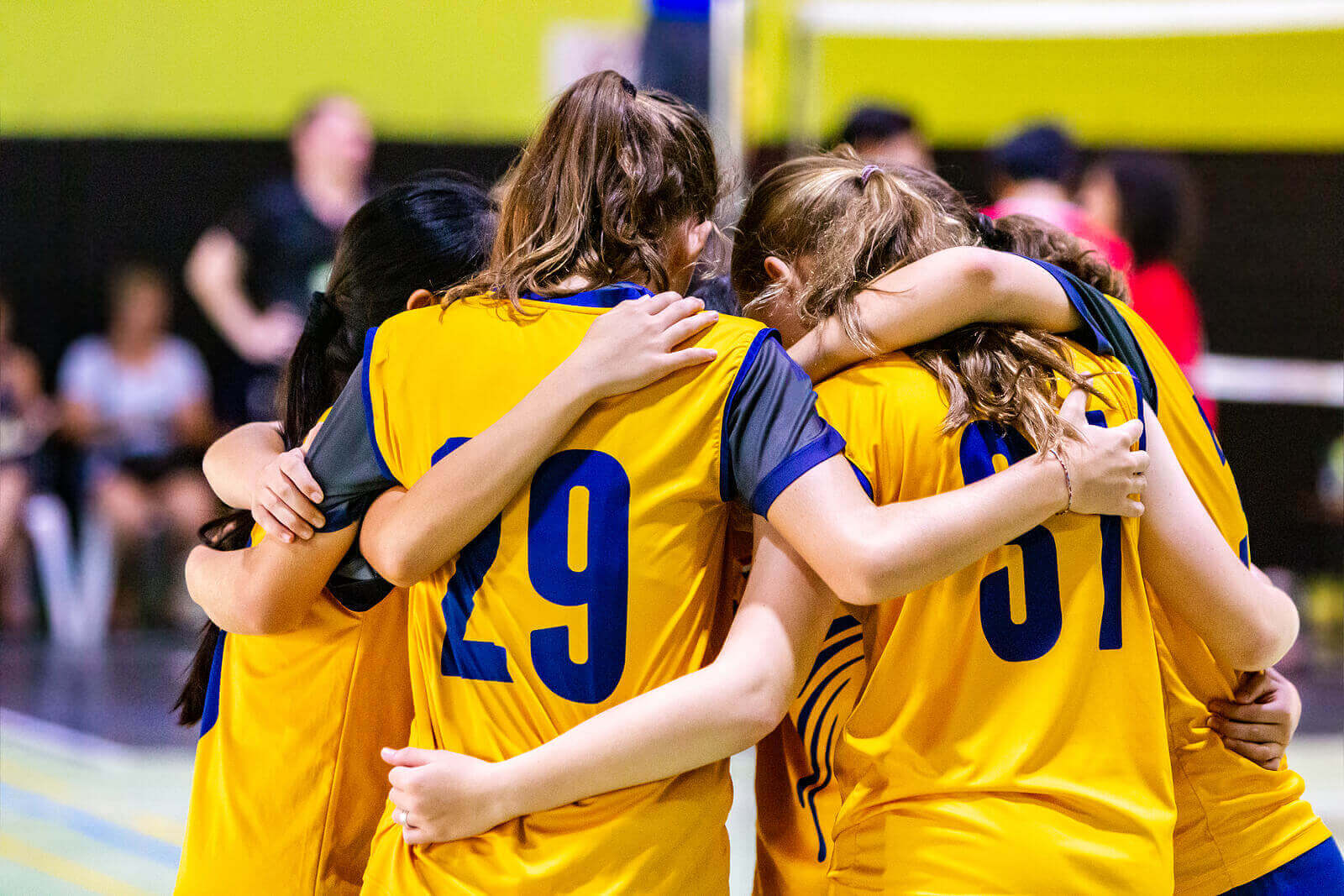When your child is involved in a competitive sport, they can spend the majority of their youth working towards mastering their craft. Eventually, this can continue into their college years with the hopes of making it as a professional.

Burnout is described as the mental and physical exhaustion caused by ongoing stress. This can happen when they are too drained, nothing feels enjoyable, and they seem to have lost a part of who they are. Burnout is extremely common in young athletes who play a variety of sports including baseball, swimming, dance, soccer, and more.
What happens if we do not address burnout?
When burnout occurs, it can cause your child to feel lost and confused. If this continues and is not recognized, it can lead to long-term decisions that impact the rest of their lives. For example, when they lose their passion, they may believe it is lost forever, leading to quitting the team and low motivation to try again in the future. While it is possible to lose interest, when dealing with burnout, it could prevent them from trying something new in the future.
The possible outcomes of not addressing burnout include:
- Quitting
- Anxiety
- Pessimistic thinking
- Isolation
- Hesitancy to be involved in future teams and hobbies.
What to look out for
When you are able to recognize burnout, its warning signs, and how to talk about it with your teen, you can learn to support them on how to get through it. Some contributing factors of burnout may look like:
Performance anxiety
Performance anxiety can occur when your teen is feeling internal or external pressure to perform a certain way. Internally, your teen could be experiencing negative self-talk, doubt, or urges to avoid. Externally, they may be feeling pressure from their team, coach, or even their support system. This can happen both intentionally and unintentionally, but either way, it tends to hold them back.
 Perfectionism
Perfectionism
When your teen slips into the mindset of having to be perfect, they may never, ever, be satisfied with their performance and ability. Perfectionism can start simply from striving to improve at a task. However, it can grow when teens are not feeling proud of the progress they have made, forcing them to reach for more, even if it’s unattainable. Even if you do not expect your teen to be perfect, they can become stuck in this way of thinking and place this expectation on themselves. Perfectionism and burnout go hand and hand and can feel exhausting.
Tough love
Being a teen therapist, I am able to dive into the challenges of their athletics. One of the most frequent connections I have witnessed is the pressure or tough love mentality teens receive from adults, including coaches, teachers, and family. Too much pressure can have your teen pulling away and losing their drive. As a parent, it is natural to motivate your child and push them to their greatest potential. However, it can be difficult to find the balance between pushing and adding pressure. For parents struggling to find this happy medium, it is okay. This balance is continuous and always changing.
Mental Health and Depression
Burnout can severely impact your teen’s mental health. If your child is showing signs of depression, this may look like a low mood, irritability, changes in sleep or appetite, isolation, staying in bed, or difficulty completing daily tasks. On the other hand, depression can also look like being on autopilot even though they are suffering on the inside. It could be getting straight A’s but silently feeling not good enough. Depression can occur in silence, but can also be triggered by the added stress of burnout.
Toxic Environments
When your teen becomes more serious about their sport, it is natural for competition to increase. However, competition is there to motivate, challenge, and push them to the next level. When the competition becomes defeating, overwhelming, or the only purpose, this could be a sign the competition is overpowering their goals.
How to help
Restructure goals and purpose
When burnout occurs, your teen could lose sight of goals, purpose, and even their identity. Taking time to reflect on their short-term and long-term goals can help to refocus your teen on why they want to keep going.
Manage expectations
Talking with your teen about how to manage their expectations can completely redefine their outlook. Saying no when things are too much lets them know they are human and everyone has different limits. This breaks down the idea of having to be perfect. Even if you’ve already had this conversation with your teen, remember that they need this reminder often.
Self-care
If stress kicks up, it is common for self-care to fall off the priority list. Making time for rest, relaxation, and restoring our bodies is crucial to athletes. If there is a day off in their schedule, use it! It is okay to have a day (or two) that does not revolve around their sport. Help your teen focus on what else they enjoy doing. They don’t need to earn rest. They rest so that they have the energy to pursue their goals.
Team building

Safe space
Start the conversation and create the space for your teen to express their concerns, struggles, or worries. Vulnerability can be a challenge when pressure is high. Talking through a worry can push your teen forward rather than feeling the burnout grow and grow. When talking to your teen about their worries, focus on listening rather than providing solutions. Support comes in all different shapes and sizes, but when you can support your teen the way that connects with them, it promotes a safe space, validation, and keeps the door open to discuss future struggles. Remind them that you care about them and want them to be happy.
Learn how Counseling for Teens Can Support Your Athlete
If your child is an athlete our teen counselors in Scotch Plains and Branchburg, NJ can provide them with extra support. We know navigating your teenage years can be hard. However, with the right support, it can be extremely rewarding. Online therapy for teens can help from anywhere in New Jersey. Our therapy practice is here to support you and your teen. Start by following these steps.
- Reach out to us to talk with a teen counselor.
- Make your first counseling for teens appointment at Brave Minds Psychological Services.
- Watch your teen thrive.
Other Services We Offer in Scotch Plains and Branchburg, NJ
Online therapy for teens isn’t the only service that we offer at Brave Minds Psychological Services. For adults, we provide trauma therapy, food allergy therapy, and couples counseling. Additionally, we have postpartum counseling and birth trauma therapy. We offer teen anxiety treatment, social phobia therapy for teens, child sexual abuse therapy, child anxiety treatment, and more. Our services are offered in person at both our Scotch Plains and Branchburg, NJ offices, and through online therapy in New Jersey



 Perfectionism
Perfectionism
4 thoughts on “Burnout in Teen and College Athletes: How Does it Happen and How Can We Help?”
Comments are closed.